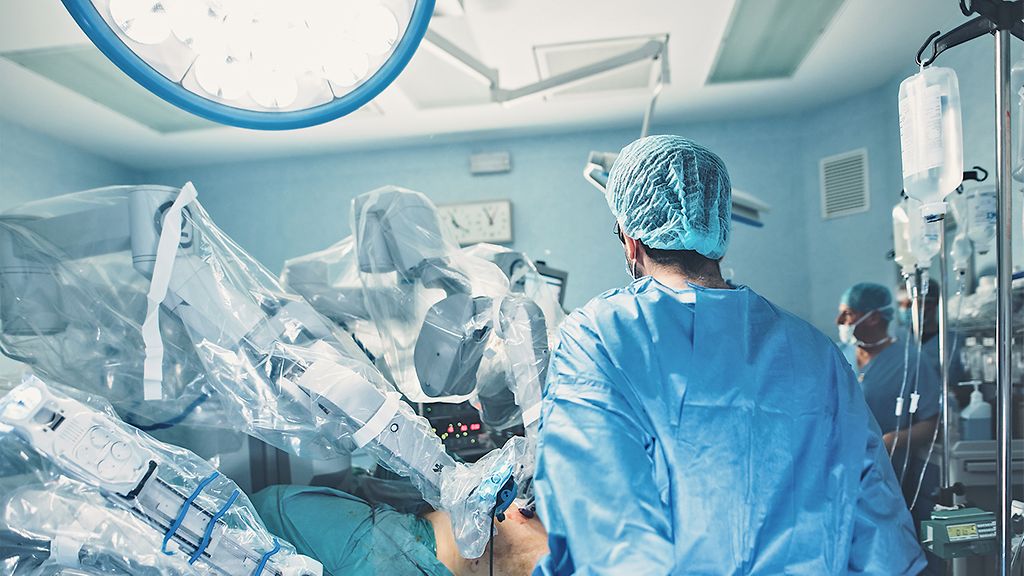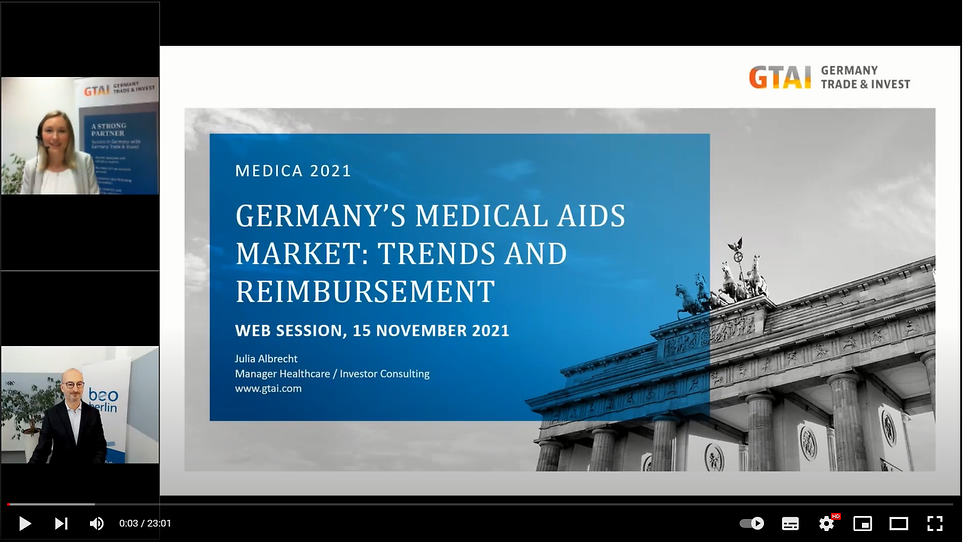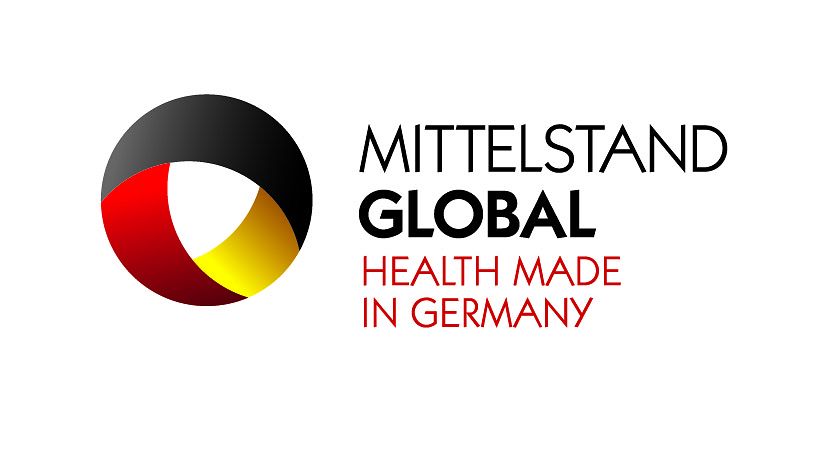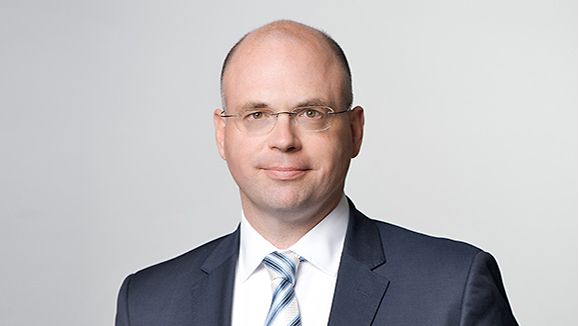Demand for innovative medical technology solutions continues to grow as we live longer, healthier lives. Medical technology and in vitro diagnostics (IVD) spending in Germany reached a forecast record high of EUR 43 billion in 2022.
The industry in numbers
According to MedTech Europe, European medical technology market volume - including IVD - grew to around EUR 160 billion in 2022. With a market share of almost 27 percent and sales of almost EUR 43 billion, Germany represents by far the largest European market (followed by France, the United Kingdom, Italy, and Spain). Almost EUR 38 billion of turnover in Germany was generated in the medical device segment and over EUR 5 billion in the IVD segment. This corresponds to 26.4 percent and 30.3 percent of the respective European markets.
EUR 38.4 bn
turnover of German medical device manufacturers
250,000
employees in the German medtech industry
12,000
companies with more than 10,000 small and micro enterprises
The positive domestic market outlook and strong exports resulted in a 5.5 percent turnover increase of German medical device manufacturers in 2022. This creates growth opportunities for the medical technology industry, which is made up almost entirely of small and medium-sized companies. Of the 1,450 companies with more than 20 employees, around 93 percent are SMEs (20 to 250 employees).
According to the German Medical Technology Association (BVMed), German medical device manufacturers generated EUR 38.4 billion in turnover in 2022. When including all small and micro-enterprises located in Germany, overall industry sales surpassed EUR 47 billion.
Medical technology “Made in Germany” is highly valued around the world. Around two thirds of the revenue of companies with more than 20 employees are generated in international markets (EUR 25.8 billion in 2022). Although the USA remains the single biggest market, followed by China, the lion's share of German medical device exports actually stay within Europe.
Market opportunity innovation
The German medical technology industry is highly innovative and drives medical progress – around nine percent of revenue is invested in R&D. More than EUR 3 billion is spent each year on R&D and the patenting of novel technologies.
9 %
of revenue is invested in R&D
1,391
patents registered with the European Patent Office in 2022
1/3
of revenue generated with products less than three years old
Germany is the leading European country in medtech based on the number of patent applications. In 2022, some 1,391 patents were registered with the European Patent Office by the German medical technology industry.
With one third of German medical technology industry turnover generated by products less than three years old, the share of innovative devices is significant.
Investor services
Germany is the ideal innovation location in the medical technology field. Working closely with cluster experts, Germany Trade & Invest (GTAI) assists international companies in identifying and contacting partners for research and development and supports companies planning to establish a physical business presence (e.g. an R&D center) in Germany.
Germany's unique medical technology clusters
Products "Made in Germany“ enjoy an excellent global reputation for their outstanding quality, innovation and design. The foundation of this success is a long-established collaboration between different actors operating in the field.
Publications
Download our latest fact sheet on Germany's medical technology clusters for free.
Free download
Germany is home to around 50 cluster networks active in medical technology. Their goal is to achieve continuous innovation in R&D as well as in manufacturing by connecting companies, hospitals, universities, and other research institutions.
Dedicated cluster management teams help obtain funding for joint R&D projects, provide shared facilities and organize educational training programs for their members. This favorable and dynamic environment can also facilitate market entry for international medical technology companies expanding to Germany.
MedTech manufacturing location Germany
Germany is an attractive production location thanks to high productivity and advanced manufacturing leadership. The country enjoys a long and successful tradition in mechanical medical engineering and high-quality manufacturing.
Medical technology companies and their employees alike can rely on Germany's world-class education system that ensures that the highest standards are always met. The country provides ready access to a competitive, highly skilled and motivated workforce, which comprises over 42 million people - making it the largest pool of skilled labor in the EU.
With its state-of-the-art infrastructure and its central location in Europe, Germany is also an ideal location for serving other European markets.
Investor services
GTAI's experts support FDI projects by international medical technology manufacturers and provide information concerning possible incentive programs that can significantly reduce investment costs under certain conditions.
Supportive hospital landscape
The country's globally renowned university hospitals play an important role in the development and introduction of new medical products and services – whether as R&D partners or in the implementation of clinical trials.
With almost 1,900 hospitals and a total capacity of around 500,000 beds, Germany has the biggest hospital sector in Europe. In 2021, close to 17 million patients received treatment, with an average hospitalization period of one week. The majority of the largest hospitals are university hospitals, of which there are a total of 36 across the country.
Spotlight: Germany’s medical aids market
Medical aids represent one major segment of the German medical technology market. Megatrends like demographic change and the increasing number of people in need of care stimulate the demand for medical aids in Germany.
The medical aids sector encompasses a wide range of different product groups in the area of assistive devices and mobility equipment – from prostheses, orthoses, walking aids and wheelchairs through to incontinence treatments and visual and hearing aids. In general, the purpose of medical aids is to ensure the successful treatment of a disease, to prevent an imminent disability or balance an existing disability of an individual.
Rising market volume
Expenditures for medical aids are continuously on the rise - growing by 3.8 percent per year between 2011 and 2021 to reach a new high of EUR 22.4 billion. A substantial proportion of expenses is reimbursed by health insurance providers. In 2021, spending by statutory and private health insurance companies on medical aids increased by five percent to EUR 11.4 billion. The number of care recipients in Germany reached almost five million by the end of 2021 and is expected to grow to around 5.4 million by 2030, further stimulating demand for medical aids in the future.
Trends and reimbursement
Watch our "Germany's Medical Aids Market” webinar for further information about the medical aids segment and reimbursement scheme.





